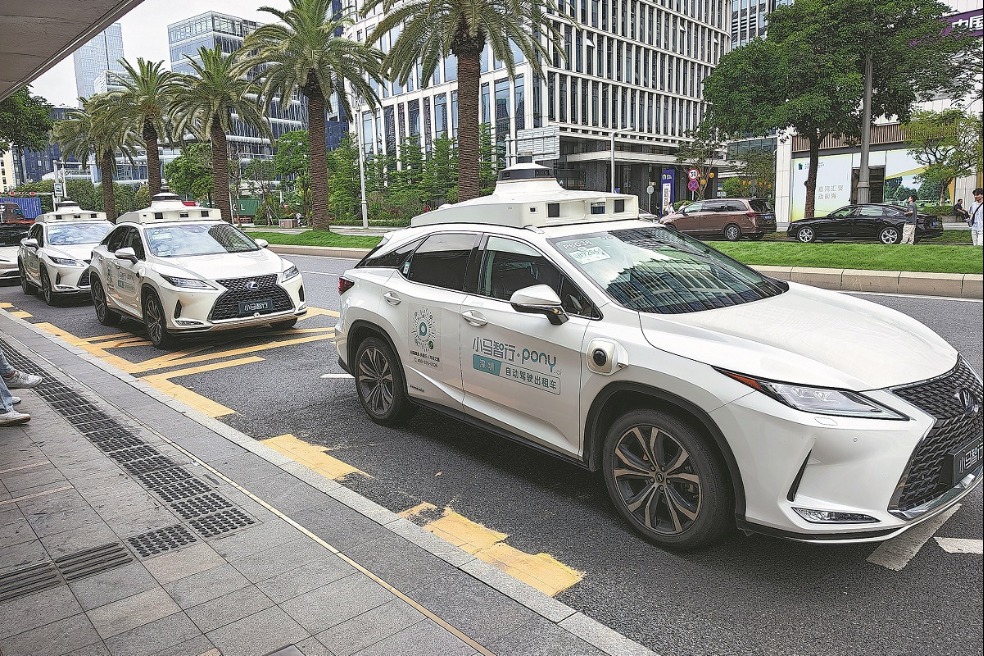Smart cabin technology growing fast in country
By LI FUSHENG | China Daily | Updated: 2024-10-21 10:51

Smart cabins are becoming a must for new vehicles in China, especially electric ones, as carmakers vie to attract car buyers with better onboard user experience.
Of the new vehicles sold in the first quarter, more than 67 percent featured cabins with large displays, voice command, access to the internet, as well as over-the-air updates, according to statistics from Dongguan Securities.
China's evolving innovation and fast development in smart cabins is a combination of factors that are hard to replicate in other parts of the world, said Guo Gang, a professor at the College of Mechanical Engineering of Chongqing University, in an interview with China Daily.
Speaking on the sidelines of the 2024 International Conference of Intelligent Cockpit, Guo, also the chairperson of the China Society of Automotive Engineers' Automotive Intelligent Cockpit Branch, cited a number of factors. These include the demands of young tech-savvy Chinese customers and the huge number of smartphone users in the country.
Statistics from marketing intelligence firm IDC show that over 71.58 million smartphones were sold in China in the second quarter this year, up 8.9 percent year-on-year. A report by the China Internet Network Information Center shows that at least 900 million residents in the country have tried online shopping.
Guo added that China's huge customer base has created a thriving smartphone ecosystem, such as apps that are easy to introduce into vehicles.
Also, a growing number of IT companies, including phone makers, are entering the automotive industry, driving competition and innovation in the sector.
Such giants as Huawei and Xiaomi have operating systems for both vehicles and their smartphones, ensuring a smooth connection.
Both the Xiaomi SU7 and Aito M7, a product co-developed by Huawei and Seres, were rated "excellent" in an evaluation of 11 NEV models by the China SAE, reflecting the prowess of the two companies in the segment.
Besides, both the central government and local authorities have issued a series of policies to stimulate the sector's development, boosting investment and innovation, said Guo.
Based on the combination of these driving forces, smart cabins are expected to offer more exciting, personal experiences in the coming years, he said.
Guo explained that they will grow from tools that offer services such as playing a piece of music or adjusting the in-cabin temperature, to companions that understand the drivers based on artificial intelligence.
Based on a report at the conference by Cao Dongpu, a Tsinghua University professor, smart cabins can be categorized into five levels from zero to four.
Cao, whose research interests include driver cognition and autonomous vehicles, said a good proportion of vehicles available in the market have Level 1 cabins, but fewer have Level 2 ones.
He estimated that the Level 3 cabins, which are smart enough to develop high-level cognitive abilities, are expected to emerge from 2027.
Level 4 ones will be available from 2032, he said.
lifusheng@chinadaily.com.cn
























